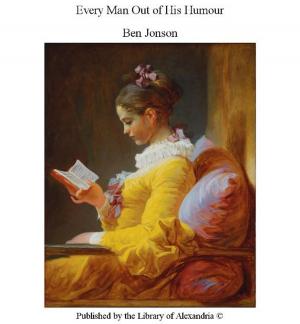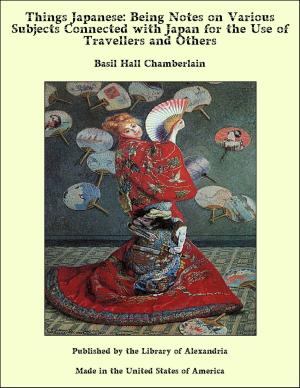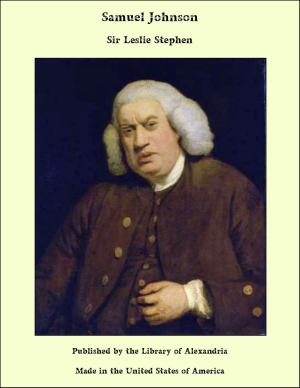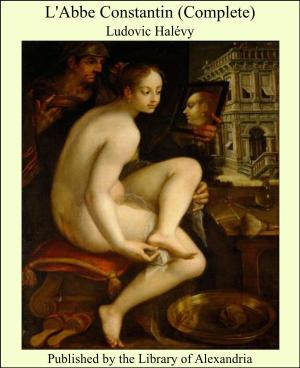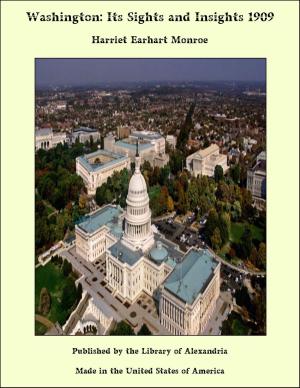The Courtships of Queen Elizabeth: A History of the Various Negotiations for Her Marriage
Nonfiction, Religion & Spirituality, New Age, History, Fiction & Literature| Author: | Martin Andrew Sharp Hume | ISBN: | 9781465612397 |
| Publisher: | Library of Alexandria | Publication: | March 8, 2015 |
| Imprint: | Language: | English |
| Author: | Martin Andrew Sharp Hume |
| ISBN: | 9781465612397 |
| Publisher: | Library of Alexandria |
| Publication: | March 8, 2015 |
| Imprint: | |
| Language: | English |
The greatest diplomatic game ever played on the world’s chessboard was that consummate succession of intrigues which for nearly half a century was carried on by Queen Elizabeth and her ministers with the object of playing off one great Continental power against another for the benefit of England and Protestantism, with which the interests of the Queen herself were indissolubly bound up. Those who were in the midst of the strife were for the most part working for immediate aims, and probably understood or cared but little about the ultimate result of their efforts; but we, looking back as over a plain that has been traversed, can see that, from the tangle of duplicity which obscured the issue to the actors, there emerged a new era of civilisation and a host of young, new, vigorous thoughts of which we still feel the impetus. We perceive now that modern ideas of liberty and enlightenment are the natural outcome of the victory of England in that devious and tortuous struggle, which engaged for so long some of the keenest intellects, masculine and feminine, which have ever existed in Europe. It seems impossible that the result could have been attained excepting under the very peculiar combination of circumstances and persons then existing in England. Elizabeth triumphed as much by her weakness as by her strength; her bad qualities were as valuable to her as her good ones. Strong and steadfast Cecil would never have held the helm so long if he had not constantly been contrasted with the shifty, greedy, treacherous crew of councillors who were for ever ravening after foreign bribes as payment for their honour and their loyalty. Without Leicester as a permanent matrimonial possibility to fall back upon, the endless negotiations for marriage with foreign princes would soon have become pointless and ineffectual, and the balance would have been lost. But for the follies of Mary Stuart, which led to her downfall and lifelong imprisonment, the Catholic party in England could never have been subjected so easily as it was. Elizabeth, with little fixed religious conviction, would, with her characteristic instability, almost certainly at one difficult juncture or another have been drawn into a recognition of the papal power, and so would have destroyed the nice counterpoise, but for the unexampled fact that such recognition would have upset her own legitimacy and right to reign. The combination of circumstances on the Continent also seems to have been exactly that necessary to aid the result most favourable to English interests; and the special personal qualities both of Philip II. and Catharine de Medici were as if expressly moulded to contribute to the same end. But propitious, almost providential, as the circumstances were, the making of England and the establishment of Protestantism as a permanent power in Europe could never have been effected without the supreme and sustained statecraft of the Queen and her great minister. The nimble shifting from side to side, the encouragement or discouragement of the French and Flemish Protestants as the policy of the moment dictated, the alternate flouting and flattering of the rival powers, and the agile utilisation of the Queen’s sex and feminine love of admiration to provoke competing offers for her hand, all exhibit statesmanship as keen as it was unscrupulous. The political methods adopted were perhaps those which met with general acceptance at the time, but the dexterous juggling through a long course of years with regard to Elizabeth’s marriage is unexampled in the history of government. Not a point was missed. Full advantage was taken of the Queen’s maiden state, of her feminine fickleness, of her solitary sovereignty, of her assumed religious uncertainty, of her accepted beauty, and of the keen competition for her hand. In very many cases neither the wooer nor the wooed was in earnest, and the courtship was merely a polite fiction to cover other objects; but at least on two occasions, if not three, the Queen was very nearly forced by circumstances or her own feelings into a position which would have made her marriage inevitable.
The greatest diplomatic game ever played on the world’s chessboard was that consummate succession of intrigues which for nearly half a century was carried on by Queen Elizabeth and her ministers with the object of playing off one great Continental power against another for the benefit of England and Protestantism, with which the interests of the Queen herself were indissolubly bound up. Those who were in the midst of the strife were for the most part working for immediate aims, and probably understood or cared but little about the ultimate result of their efforts; but we, looking back as over a plain that has been traversed, can see that, from the tangle of duplicity which obscured the issue to the actors, there emerged a new era of civilisation and a host of young, new, vigorous thoughts of which we still feel the impetus. We perceive now that modern ideas of liberty and enlightenment are the natural outcome of the victory of England in that devious and tortuous struggle, which engaged for so long some of the keenest intellects, masculine and feminine, which have ever existed in Europe. It seems impossible that the result could have been attained excepting under the very peculiar combination of circumstances and persons then existing in England. Elizabeth triumphed as much by her weakness as by her strength; her bad qualities were as valuable to her as her good ones. Strong and steadfast Cecil would never have held the helm so long if he had not constantly been contrasted with the shifty, greedy, treacherous crew of councillors who were for ever ravening after foreign bribes as payment for their honour and their loyalty. Without Leicester as a permanent matrimonial possibility to fall back upon, the endless negotiations for marriage with foreign princes would soon have become pointless and ineffectual, and the balance would have been lost. But for the follies of Mary Stuart, which led to her downfall and lifelong imprisonment, the Catholic party in England could never have been subjected so easily as it was. Elizabeth, with little fixed religious conviction, would, with her characteristic instability, almost certainly at one difficult juncture or another have been drawn into a recognition of the papal power, and so would have destroyed the nice counterpoise, but for the unexampled fact that such recognition would have upset her own legitimacy and right to reign. The combination of circumstances on the Continent also seems to have been exactly that necessary to aid the result most favourable to English interests; and the special personal qualities both of Philip II. and Catharine de Medici were as if expressly moulded to contribute to the same end. But propitious, almost providential, as the circumstances were, the making of England and the establishment of Protestantism as a permanent power in Europe could never have been effected without the supreme and sustained statecraft of the Queen and her great minister. The nimble shifting from side to side, the encouragement or discouragement of the French and Flemish Protestants as the policy of the moment dictated, the alternate flouting and flattering of the rival powers, and the agile utilisation of the Queen’s sex and feminine love of admiration to provoke competing offers for her hand, all exhibit statesmanship as keen as it was unscrupulous. The political methods adopted were perhaps those which met with general acceptance at the time, but the dexterous juggling through a long course of years with regard to Elizabeth’s marriage is unexampled in the history of government. Not a point was missed. Full advantage was taken of the Queen’s maiden state, of her feminine fickleness, of her solitary sovereignty, of her assumed religious uncertainty, of her accepted beauty, and of the keen competition for her hand. In very many cases neither the wooer nor the wooed was in earnest, and the courtship was merely a polite fiction to cover other objects; but at least on two occasions, if not three, the Queen was very nearly forced by circumstances or her own feelings into a position which would have made her marriage inevitable.


